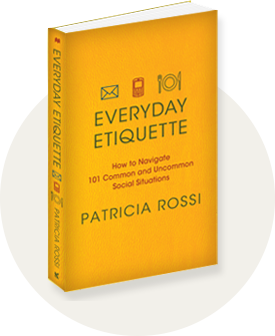 You’ve just been hired at a new company, and to celebrate, the boss and his wife are taking you and your significant other out to dinner. So far, things are going great. Your boss beams at you as he passes you the bread, complimenting you on your first day. Before long, the table has lit up with laughter as the group begins to share their mildly embarrassing first day at work stories. Knowing your story will top them all, you clear your throat and begin. But as you get to the end, you realize something is wrong. Your significant other is blushing, your boss is nervously glancing at his water, and his wife is struggling to give you a rather awkward smile and nod.
You’ve just been hired at a new company, and to celebrate, the boss and his wife are taking you and your significant other out to dinner. So far, things are going great. Your boss beams at you as he passes you the bread, complimenting you on your first day. Before long, the table has lit up with laughter as the group begins to share their mildly embarrassing first day at work stories. Knowing your story will top them all, you clear your throat and begin. But as you get to the end, you realize something is wrong. Your significant other is blushing, your boss is nervously glancing at his water, and his wife is struggling to give you a rather awkward smile and nod.
Being able to make someone laugh is a wonderful feeling, so it’s no wonder we offer our amusing tales so freely; however, humor can differ greatly amongst different groups and cultures, so it’s best that you exercise caution. As it’s the middle of Smile Month, keep your jokes and funny stories in check by avoiding those with these five characteristics.
It Targets a Group of People: Jokes about a minority group, religious group, women, the disabled, blondes, or your mother, are generally not appropriate in any context.
It’s Cruel: If your story is mean-spirited, or if it involves something or someone being hurt (emotionally or physically) or killed, there will definitely be people who take offence to it.
It’s Sexual: Whether it’s a dirty joke or a hilarious personal story, sex generally makes people uncomfortable. Think twice about sharing.
It’s Bathroom Related: Many people don’t like bathroom humor to begin with, but an inappropriate setting can make these seemingly harmless jokes or stories seem even worse.
It Requires Profanity: For some, swear words are just a part of language, while for others, it’s offensive and distasteful. If you couldn’t tell your story or joke on national television, you probably shouldn’t repeat it to a group.



